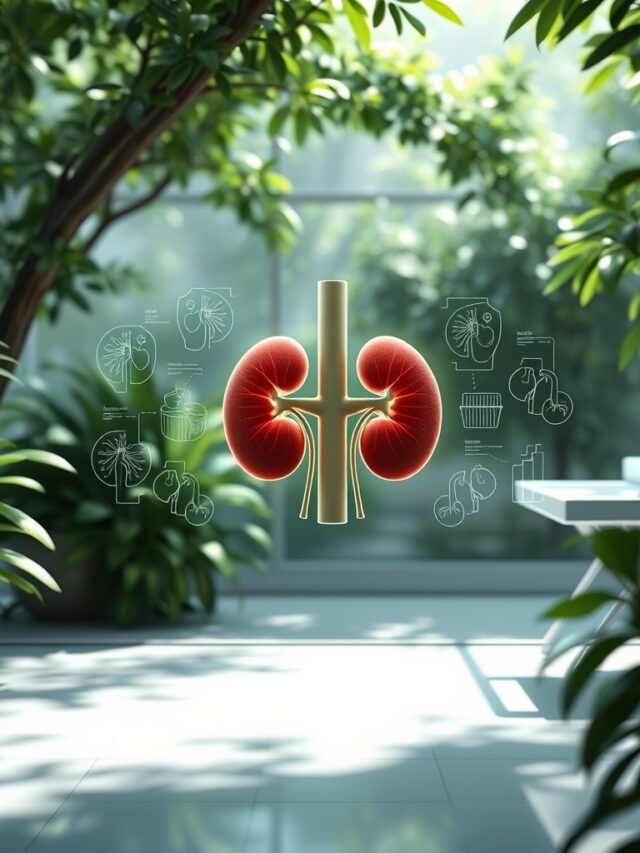So, what colour is urine when your kidneys are failing? Well, The colour of your urine can provide necessary information about what is happening in your body, and, in fact, it could also point toward kidney failure. The kidneys, when healthy, filter the blood, removing any excess fluid, minerals, and waste from it. However, when they don’t work as they should, harmful waste can build up and the number of times urine is passed and the colour of the urine that is passed can change considerably.
Keep in mind that urine can actually be all sorts of colours, from dark yellow to even blue 1. In fact, even doing something as simple as hydrating more 2 can change the colour of your urine.
Understanding the colour of urine when your kidneys are failing can provide valuable insights into potential kidney issues and prompt necessary medical attention.
What Changes Can You Expect in Your Urine When the Kidneys Fail?
It’s important that you pay attention to the colour of your urine because this can be a tell-tale sign of kidney health and even just overall health. In a healthy human body with normally functioning kidneys, urine is clear to yellow. Consuming certain medications can change the colour of the urine temporarily.
However, if there is a kidney problem, urine colour may turn pink or red. This colour of urine with kidney infection typically indicates the presence of blood in your urine 3. The colour could be a sign of kidney stones, an infection in the organ, or even cancer.
What Are Some Of The Common Symptoms of Urine Changes?
Urine colour in kidney disease is one of the most common changes. Apart from this, you would notice a change in the following aspects:
- A strong odour coming from the urine
- Frothing or foaming of the urine
The colour changes typically are affected by how much water you drink. If you consume a lot of water, you’ll see that the urine is light yellow or clear. If you’re dehydrated, the urine will likely turn a darker yellow or even orange. But urine that is red should be a cause for concern, since it points toward an underlying medical issue, usually with the kidneys.
The smell of your urine is typically unique to just you. Certain foods, of course, alter the smell of your urine. But your urine should always return to its normal state within 24 hours. If you find that your urine smells strongly of something, it may be time to get a medical opinion.
Also, the consistency of urine is usually clear, but if you’re noticing that you’re passing urine that is very foamy, it could be a sign of excess protein. This, in turn, could point toward kidney disease 4.
Why Does Urine Change Colour When Kidneys Fail?
What colour is urine when the kidneys are failing? The answer is, it depends. The kidneys, when they are normally functioning, remove liquid waste from the body and keep the salts, minerals, and water in balance.
However, kidney failure can affect the presence of minerals and salts in the blood. It can also cause a build-up of waste products or even red blood cells in the urine, resulting in a decreased frequency of urination. This causes darkening of the urine, turning it to a reddish or brown colour. It can also look foamy. These visible signs are early indicators of kidney disease. It also indicates the presence of unfiltered protein in the urine.
Apart from the colour, changes to the frequency of urination can also occur when the kidneys fail. Often, kidney failure can affect the balance of minerals and salts in your blood. This may lead to less frequent urination.
What Colour Should Your Urine Be When Kidneys Are Healthy?
It is understood that the healthy urine colour is pale yellow 6 or clear; this means your kidneys are working well and that you’re well hydrated. However, even when the kidneys are working well, the colour of your urine can vary significantly.
Urine colour chart
Here are a few other colours your urine could take on and what it may mean for you:
|
Urine colour |
Description |
Actions to Take |
|
Clear |
Indicates excessive hydration beyond recommended levels. |
Consider reducing water intake if consistently clear. Consult a doctor if accompanied by other symptoms. |
|
Yellowish to Amber |
Normal urine color, indicating healthy hydration levels. |
Maintain balanced hydration levels. |
|
Dark yellow |
Indicates potential dehydration |
Increase water intake |
|
Pink to reddish |
Could be due to the consumption of certain foods or the presence of blood |
If blood is suspected, contact your doctor |
|
Orange |
Sign of dehydration; certain medications and vitamins could cause orange urine as well |
Increase hydration; observe changes |
|
Blue |
Possible consumption of foods or medications with indigestible dyes |
No specific action unless the condition persists |
|
Cloudy |
Cloudiness in urine can indicate various conditions, including infections, pregnancy complications, or chronic diseases. |
Seek medical evaluation, especially if accompanied by other symptoms or if pregnant. |
|
White/Milky |
Milky appearance in urine can be attributed to various factors such as urinary tract infections, kidney stones, or certain medical conditions. |
Consult a healthcare professional for evaluation and treatment, especially if accompanied by discomfort or other symptoms. |
How is Urine Change Diagnosed?
If your urine develops a colour that cannot be linked to the food you have eaten, your medication, or potentially dehydration, you should see a doctor. Your doctor can choose the cause of the change in colour of your urine.
Some of the underlying causes of dark or abnormal-coloured urine are quite harmless and will resolve themselves in a few hours or days.
However, others may indicate kidney failure urine colour or other serious illnesses and could require treatment. So, for that reason, if you notice blood in your urine or if you pass dark brown urine, you should make an appointment with your doctor at the earliest.
To make a diagnosis, your doctor will seek certain information from you. Expect to answer questions like:
- When you first noticed the urine colour change
- How long the colour has lasted
- If you’ve noticed any strong or unpleasant odours along with the colour change
- If you’ve passed any blood clots in your urine
They’re likely to ask you if you had any pain or discomfort while you passed your urine and if you experienced any other symptoms. They will also take a case history, complete with the names of all the medications and supplements you may be taking. Remember to disclose to your doctor if you’re taking any herbal or alternative medications since they could be the cause as well.
Once your doctor knows what symptoms you are experiencing and based on the current colour of your urine, you may be asked to take one or more further tests. For instance, your doctor may require that you take a Kidney Function Test if they think the issue is with your kidneys. They may also order a Urine Routine Test. Blood tests or even full-body tests may also be required to learn if your kidneys and liver are functioning normally.
After the tests, your doctor may perform an ultrasound of your kidneys or your urinary bladder. This is essentially an imaging test that makes use of sound waves to create a realistic image of your internal organs. If your doctor suspects that the actual cause of a change of colour of your urine is urinary tract stones, a pelvic CT scan or an abdominal scan may be performed.
Based on the results of this test, your doctor will prescribe medications or a more intensive treatment plan. In case, your urine colour change is due to simple factors like dehydration, all you may need is lifestyle changes. However, if the results indicate that there is something wrong with your kidneys, you may be asked to follow specific lifestyle changes and take certain medications. If it’s a severe case of kidney failure, you may also need a kidney transplant or dialysis 7 to remove toxins from the body.
Typically, people who are diagnosed with acute kidney failure, as opposed to chronic kidney failure, are likely to have a better treatment outlook. This is because kidney function may return back to normalcy 8 soon after completing the treatment.
What Are Some Of The Other Symptoms of Kidney Failure?
Keep in mind that apart from urine colour in kidney failure, the condition can also have other symptoms as well. According to the Centers for Disease Control and Prevention 5, almost 9 out of 10 people are unaware they even have kidney disease. This is because kidney disease hardly presents any symptoms when it first appears.
However, as it progresses, you’re likely to see a number of changes, apart from just colour changes in the urine. Some of the other symptoms of kidney failure you may want to keep an eye on include:
- Decreased urine each time you pee
- Trouble sleeping
- Fluid retention that causes the feet, ankles, and legs to swell
- Muscle cramps and nausea
- Shortness of breath and chest pain
- Excess fatigue
- Confusion
- Coma
- Seizures
When Should You Worry About Changes in Your Urine?
As mentioned previously, urine colour change could have a lot of causes that aren’t serious or significant. Still, observing the colour, smell, and consistency of your urine is important since it can indicate your kidney health. If you suddenly start noticing odd colours in your urine or if you notice a strange smell that you didn’t notice before, it may be time to do a few tests and contact your doctor.
Disclaimer
The information listed here is strictly for educational purposes and is not intended to offer personal medical advice. Do consult your physician for any questions you may have regarding a medical condition. It’s not advised to disregard professional medical advice or delay in seeking it because of any information listed here. The Nutrition Source does not recommend or endorse any products.












